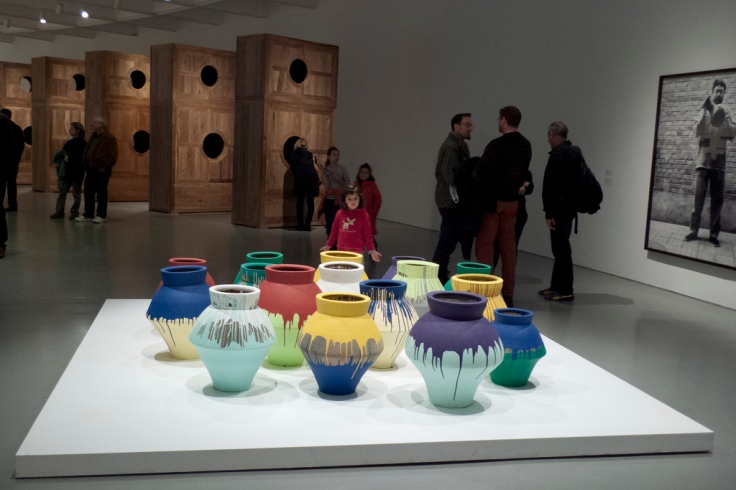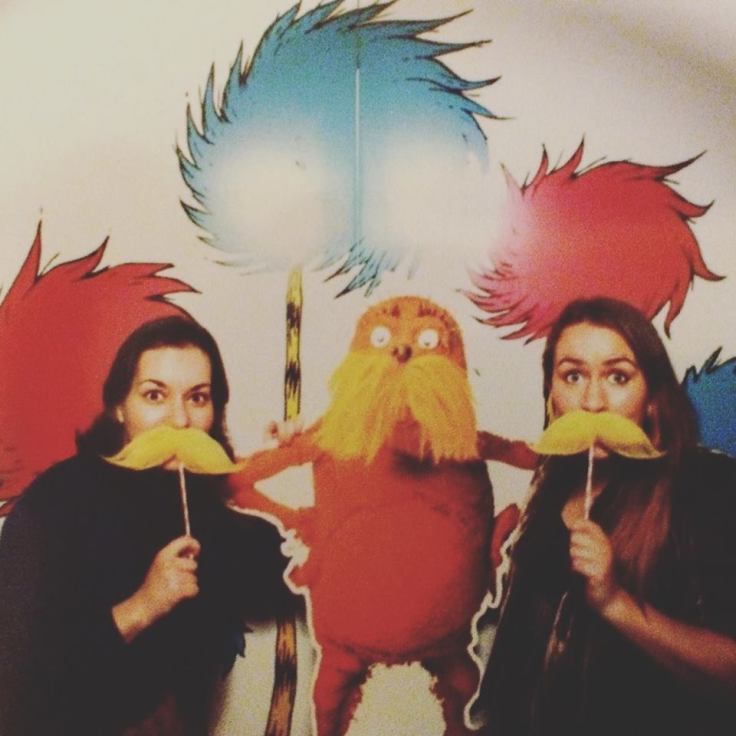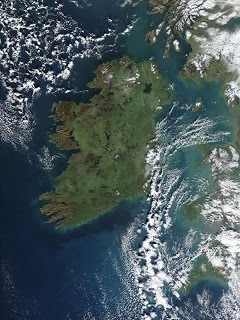Last Thursday, I went to the Ai Weiwei exhibition in London, but I engaged with the show long before I arrived in the courtyard of the Royal Academy. I’ve noticed the same tendency in other exhibitions I’ve been to see: We begin consuming them in various ways before we even set foot in the art-space meant to contain them. It’s a feature of the contemporary art experience; it always seems to extend beyond the walls of the exhibition itself.
Before I went to Ai Weiwei, I watched Alison Klayman’s film “Ai Weiwei: Never Sorry,” and I spoke with my artistically inclined friends to try and gauge an idea of who the artist was to the art world. Just glancing at the Royal Academy’s website offered up a cornucopia of information, and that’s just scratching the surface of the media surrounding Ai Weiwei that is available for us consume. I learned that the effort to transport ‘Tree’ from China was crowdfunded by 1,319 disparate backers, and doesn’t that resonate with the work itself, which is pieced together from diverse fragments of dead trees? I learned about Ai Weiwei’s history, his activism and his previous work. I downloaded an extract of the audio guide to the exhibit and took a virtual tour of the space by browsing its official photographs. I even entered a competition to win a 10 day trip to China (although not without noting the irony of such a promotion given the controversial message Ai Weiwei’s work sends about his native country)!
The totality of the satellite media surrounding Ai Wewei went into my building an expectation of the exhibition in the run up to my actual visit. As I entered, I was just continuing the experience I had begun several weeks before. And after I left, I knew that my Ai Weiwei experience didn’t have to end just yet. Maybe someone would ask me about my ‘Raise Your Finger’ umbrella (available as you exit through the gift shop), or perhaps I would engage with others at #AiWeiwei on Twitter. In their seminal article The Experience Economy (1998), James Gilmore and Joseph Pine advanced their theory that contemporary businesses no longer sell physical products, but instead curate a memorable experience, which then becomes the product. So the £11 you drop on a ticket to the Ai Weiwei show buys you the whole of this experience, which is extended and enhanced by the variety of supplementary media products that accompany it.
Great value for money, huh? Here’s the rub. Ai Weiwei said “An artwork unable to make people feel uncomfortable or to feel different is not one worth creating.”
Thanks to my research, when I entered the Royal Academy, I knew which part of the exhibition I was most excited to see. I wanted to see ‘Coloured Vases,’ which consists of ten Neolithic vases Ai Weiwei has painted over and, of course, the famous ‘Han Jar Overpainted with Coca-Cola Logo’. But I’d already read about these pieces and thought hard about whether or not his statement about the destruction of antique objects and ancient Chinese buildings during the Cultural Revolution in China justified further desecrating historical artifacts. I’d considered whether being used in his art made these vases palimpsests with value added or if he was taking his statement too far. So when I stood in front of those pieces, I waited for something special to happen. I waited for shock. I waited to feel different. But nothing happened. I found that having read and thought about the exhibition to the extent that I had, actually dulled the experience of being there. The artwork failed to shock me in the same way it could have if I had come to the exhibition with a fresh mind. In fact, standing in front of this art I had thought so hard about, I had the uncanny feeling of deja-vu.
So what then of Ai Weiwei’s statement that if a work of art doesn’t make you feel uncomfortable or different it isn’t worth anything? Is this focus on the total experience, on bombarding us with media to consume before and after the exhibition actually detrimental to the goal of the art in the first place? Perhaps instead of spoon-feeding us an experience, galleries should focus on letting the art speak for itself. Which is not to say that they shouldn’t be able to advertise their exhibitions; we are a capitalist society, after all. It’s just that the spectator should be given a chance to discern what they think a work of art means on their own. The way things are currently set up, it’s almost impossible for us to avoid participating in the consumption of the supplementary media that takes ownership of the art, telling us exactly what it means before we get a chance to ask ourselves how it makes us feel. Allowance must be made for the subjective dimension of art interpretation, otherwise what is the point in going to see it at all? I have no problem with the extension of the experience after the exhibition as it encourages debate, but I think the preemptive influx of information actually stifles it. If people are never given the chance to consider a work of art in isolation they can’t know how it really makes them feel, or come up with an interpretation other than what they have already been told the work is trying to say.
I’m not saying that art needs to emerge from a vacuum to allow it to affect you, just that there is something to be said for opting out of the ‘total experience’ to allow for the engagement with the art on your own terms. There’s no two Weis about it: sometimes less really can be more.




Recent Comments